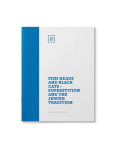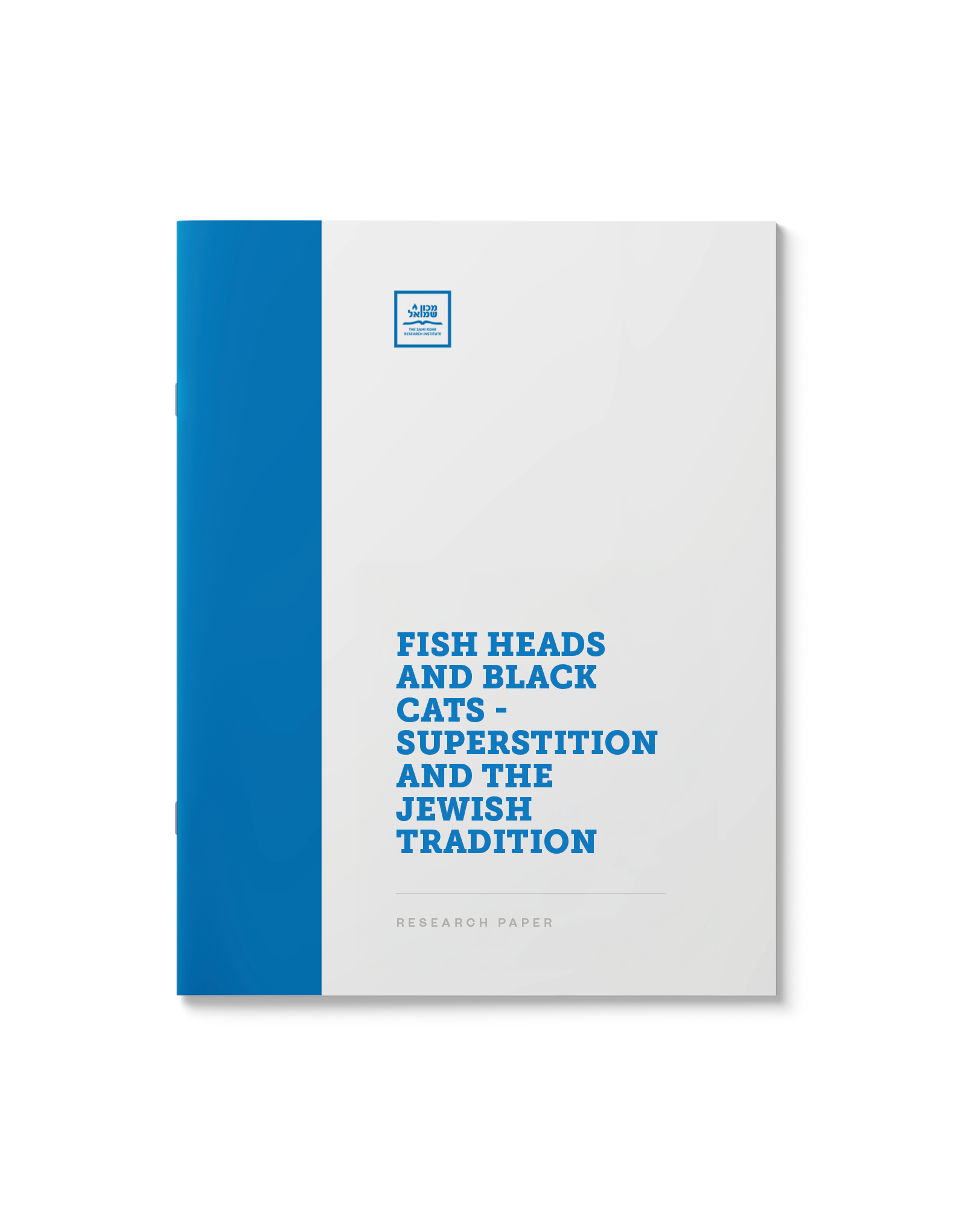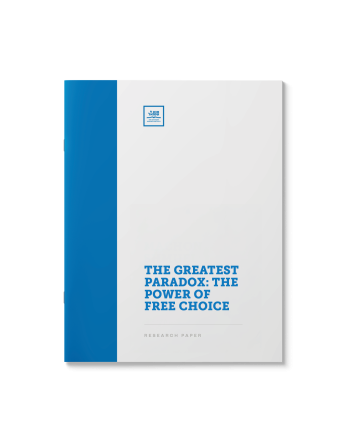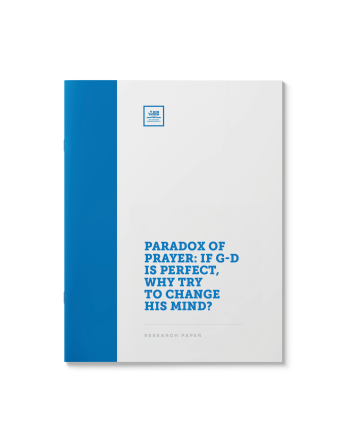Fish Heads and Black Cats – Superstition and the Jewish Tradition
$75.00
Men have forever clung to non-rational practices to ensure their safety and success. But the Torah requires faith in G-d and avoidance of divination and the like. Where is the line between prohibited and permissible divinations or superstitions? Does a Torah-true lifestyle include its own Omens, good signs and practices which are permitted and even encouraged? What is the background of many of our more well-known Segulos?
Related: It’s Written in the Stars: The Jewish Approach to Astrology, Zodiac and the Horoscopes
and Bones and Broomsticks: Sorcery in the Torah
| Language | English |
|---|---|
| Paper Type | Research Paper |
| Pages | 71 |
Related Products
Our Sages teach that the passing of the righteous serves to pardon the misdeeds of the generation. Does actual penitence on the part of the people play any role in the forgiveness that is granted? Is this associated, in any way, with the date of the passing of the righteous individual?
Love is not bound by time. Even after a loved one passes on, they continue to live on in our hearts; we treasure the memories of the times we spent together and immortalize them through noble deeds.
But may we communicate with them after they’ve gone? The Torah (Devarim 18:11) instructs us to avoid all occult arts, such as sorcery, divination and necromancy. What are the details of these laws and what practical relevance do they have?
Related: Familial Bonds in the Hereafter and תפלה על קברי צדיקים
Table of Content
(21 PAGES)
Query from a Shliach in France
If an omniscient G-d already knows what our future holds,
how is it possible to have free will? Known as the clash of yediah and
bechirah, this paradox has gripped scholars for millennia. This paper explores
the ongoing debate.
If we believe that G-d is the ultimate good who does only good, why would we pray for a change to our fate? This paper solves the paradox between perfect belief in G-d’s benevolence and the centrality of prayer in Jewish belief.
In recent decades, thousands of Jews have gravitated to the East in pursuit of spiritual enlightenment. More recently, several Eastern Practices have been secularized, popularized, and repackaged as physical and meditative exercises. Does this make them kosher? Which practices are problematic and should be avoided? And what was the Rebbe’s response to the popularization of Yoga and Transcendental Meditation back in the ’70s?
(67 pages)
Submitted by a Shliach in New York
A thorough demystification of Gan Eden, lending clarity to an
oft-misunderstood feature of Jewish belief. This paper reaches into centuries
of literature to define what the purpose of Gan Eden is, what transpires there,
and what a person must do to gain entry to this exclusive realm.
How did man come to possess the arts of the occult? What is the scope of their influence over reality? How were they transmitted and shared? Are they still in existence?
In what way are Kabbalistic practices to be distinguished from the occult? Our tradition tells of sages who used the secrets of Kabbalah to manipulate the powers of creation. Does this fall under the same rubric?
Related: Bones and Broomsticks: Sorcery in the Torah Part I
One of the most painful events to strike the Jewish people in recent memory is the tragedy of the Holocaust, which decimated European Jewry in a show of appalling cruelty. Having narrowly escaped its horrors himself, the Rebbe was uniquely placed to offer comfort and guidance to those who survived with both faith and sensitivity.
Part I – Making Sense of the Senseless: The horrific suffering of the Holocaust, having seared into our collective conscience, has confronted many Jews with a crisis of faith. The Rebbe offers a unique approach, allowing us to affirm our faith in a kind and just G-d, while maintaining our empathy for the plight of the Holocaust victims.
This paper addresses a range of issues. How does one maintain faith in G-d’s justice in light of such unfathomable horrors? Is this paradox surmountable for all, including those who do not fully subscribe to all dimensions of Torah scholarship? Is it appropriate to rationalize the plight of the Holocaust victims? Does our moral outrage preclude us from taking to heart the lessons these events offer?
Bitachon. It’s a powerful word; the absolute faith that G-d will always provide. From financial deals to health concerns, travel arrangements to hopes for the future – we trust that G-d only acts for the best. But how can we have Bitachon when we’re faced with a violent and dangerous world? When personal tragedy strikes, how can we continue to have faith? Where is the line drawn between Bitachon and folly? When one laughs in the face of nature, is he trusting in G-d or scorning G-d’s providence?
When tragedy strikes, we
struggle to understand G-d’s ways. Is it ok to openly challenge Him? Is it a
sign of deep belief or deep blasphemy? What about the Jewish greats, Moses at
their head, who brazenly questioned G-d? This paper is a comprehensive study of
the acceptable Jewish response to death, tragedy and pain.
Life is an endless gauntlet of tests and challenges. Judaism teaches us that G-d never gives us a challenge we can’t surmount, but the question remains: why? Why does G-d continuously test us? What purpose does it serve? Can we not succeed without them? And how can we learn to thrive in the face of challenge?
“If you are righteous, what do you give Him?” (Job 35:7)
It is axiomatic that mortal actions are completely insignificant to an infinite creator. Yet the Torah provides examples of where human actions set off a chain reaction throughout the cosmos, affecting the supernal realms or reality. What are some of these examples, and how should they be understood?
(Hebrew)










![Bones and Broomsticks: Sorcery in the Torah Part II [New!]](https://catalog.myjli.com/wp-content/uploads/2025/05/SAMSBAB-350x448.png)




